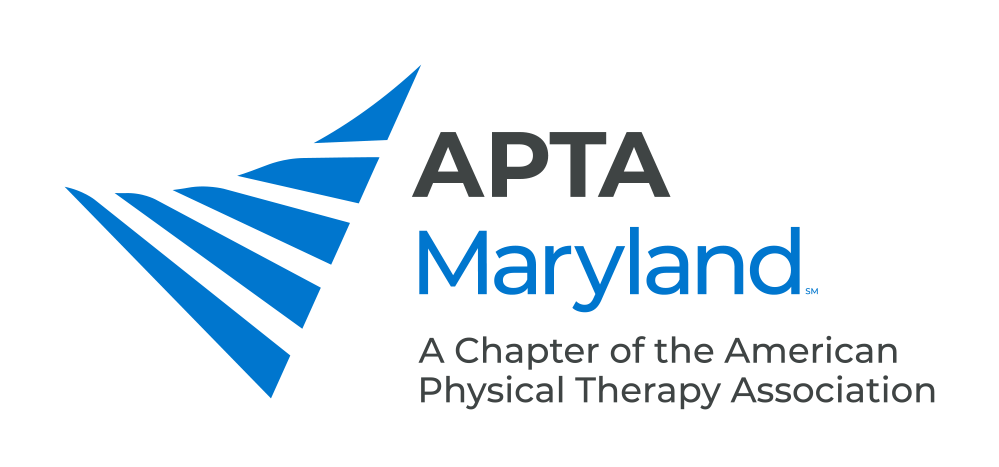Implicit Bias Training
Implicit Bias Training is Required for License Renewal for all Health Occupations in Maryland
As part of APTAMD’s commitment to diversity, equity and inclusion, the following courses were created to increase awareness of implicit bias and reduce its impact in patient care. APTA Maryland implicit bias courses meet the state’s mandate for license renewal for all health occupations in Maryland. The content was created for our PT/PTA members but is appropriate for all.
Currently, the only approved implicit bias training courses that earns continuing education (CE) hours for licensure renewal with the Maryland Board of Physical Therapy Examiners are the APTA Maryland Implicit Bias Trainings worth three contact hours (0.3 CEUs).
We have developed 2 on demand courses with plans to continue to the conversation with additional content.
- Course I: Implicit Bias: Cognitive Gaps in Clinical Practice
- Course II: Continuing the Conversation: Implicit Bias in Patient Care
* This course also meets the requirement for LGBTQIA+ competency for DC license renewal
Obtaining the Certificate of Completion
The Certificate of Completion for each course will be available for download or print once completed.
Fees (All sales are final)
- Members: $25
- Non-Members: $50
- Open to all health professionals
- If you join APTAMD within 90 days of purchasing the course, email us proof of membership and we will refund you $25
APTA Maryland Implicit Bias Courses
Purchase (Members Must be Logged In to Receive the Member Rate)
This course explores racial and ethnic disparities in health status, health care, and physical therapy. It will also review social vulnerabilities from these inequities including substance use disorders to treat acute and chronic pain.
This course was developed to meet the new implicit bias training requirement for Maryland health professionals. The goal was to develop a training for clinicians. Though the content was developed for physical therapy professionals, it is appropriate for any health occupation. This course was developed to fulfill the new requirement.
Learning Objectives:
- Discuss racial bias and discrimination as it relates to inequities in pain experiences and pain care for black and brown communities
- Recognize the impact of implicit or explicit bias in the management of patients with opioid use disorder
- Discuss how the language we use stigmatizes patients with opioid use disorder
- Identify one’s own implicit biases.
Speakers
Roy J. Film, PT, MPT, DPT, OCS, FAAOMPT is an assistant professor and Director for Residency & Fellowship Education at the UMSOM Department of Physical Therapy & Rehabilitation Science (PTRS) where he teaches primarily in the areas of orthopedic PT, manual therapy, chronic pain, and evidence-based practice. Roy’s interests focus on the conservative management of musculoskeletal conditions and helping to elevate clinical practice by teaching throughout the full spectrum of the field by teaching doctoral students, practicing clinicians, residents, and fellows. His personal mission is to help minimize the burden of the opioid crisis via promoting the use of evidence-based nonpharmaceutical pain management approaches such as physical therapy.
He is also the Director of the UMSOM Fellowship in Orthopaedic Manual Physical Therapy as well as the Academic Director for the University of Maryland Orthopaedic Physical Therapy Residency. He has been a recipient of the PTRS Faculty of the Year Award three times and the Adjunct Faculty of the Year Award twice. Roy was the 2017 recipient of the Distinguished Service Award from the American Physical Therapy Association of Maryland. He is the current Vice President of the APTA of Maryland and serves on accreditation bodies for PT residency and fellowship programs both nationally and internationally.
Dr. Film has served as the national taskforce leader for increasing access to non-pharmacological pain management through US Army Medical Command (MEDCOM) for the National Opioid Crisis Community Summit. He works with the United Nations World Health Organization Peer Review Group for Musculoskeletal Conditions as a reviewer for recommendations on the management of Low Back Pain, Osteoarthritis, Rheumatoid Arthritis, and Fractures.
On campus, he has served on the UMB Faculty Senate and the SOM Diversity Advisory Committee in addition to the many departmental service roles he has played in PTRS over the years.
Michael Ukoha, PT, DPT is a Physical Therapist at FOX Rehabilitation in Maryland and Washington DC. He currently serves as the Chair of the APTA Maryland DEI Committee and created the Live and Grow Mentorship organization to help diversify the field of physical therapy through the development of a support system for pre-PT students applying to DPT programs. He currently serves as a PT Moves Me Ambassador for APTA Maryland to further educate pre-pt students on the profession, career pathways within it, and expectations of practice in various clinical settings. Michael was presented with the APTA Maryland Student Leadership Award in 2016 for his contributions to the chapter as a student delegate for House of Delegates (HoD) and co-founder of the student special interest group (SSIG). Michael was awarded the Geriatrics and Gerontology Education and Research (GGEAR) award by the GGEAR program of University of Maryland Baltimore in 2017 for his graduating class. He was awarded Twenty Tigers in Their Twenties award by the Towson University Alumni Association in 2018 recognizing his consistent achievements and contributions that have positively impacted the Towson community and university. He is the 2021 Recipient of the Steven M. Levine Award from the APTA Maryland recognizing his current leadership at the state and national level, advocacy for the profession, and a role model for professionalism.
Purchase (Members Must be Logged In to Receive the Member Rate)
This course is the 2nd in our implicit bias training series. In 2021, APTAMD developed the course, Starting the Conversation: Implicit Bias – Cognitive Gaps in Patient Care. This course will further explore historically recognized racial and ethnic disparities in patient care. It will also review resources for students and clinicians to intentionally provide culturally competent client interactions and clinical care for various communities.
This course was developed to meet the new implicit bias training requirement for Maryland health professionals. The goal was to develop a training session for clinicians. The content was developed for professionals of any health occupation with an emphasis on physical therapy professionals.
Course Objectives
Section 1:
1.Explain how the design of the US health system drives utilization of health services
2.Describe the state of Fair Copay legislation for physical therapy services in the US
Section 2:
1.The participant will identify strategies for self-awareness of biases towards the LGBTQIA+ community to minimize barriers to healthcare delivery
2.The participant will express gender-neutral communication to affirm LGBTQIA+ clients/patient
Section 3:
1. Participants will recognize how cultural and personal beliefs impact the quality of care delivered and take action to improve customer ratings and retention.
2. Participants will be able to explain how mastering the 4Ps of customer service – promptness, professionalism, personalization and politeness – will ensure a value-driven service culture.
Section 4:
1. Assess the current status of implicit bias exposure in DPT programs based on data from informal national survey
2. Summarize 3 essential benefits of implicit bias training in preparation for clinical care.
Speakers
Dr. Roy J. Film is an assistant professor and the Director for Residency and Fellowship Education at the University of Maryland School of Medicine (UMSOM) in the Department of Physical Therapy & Rehabilitation Science where he teaches in the areas of orthopaedics, persistent pain, and evidence-based practice. He is the Program Director for the UMSOM Fellowship in Orthopaedic Manual Physical Therapy as well as the Academic Director for the University of Maryland Orthopaedic Physical Therapy Residency. He is Board Certified in Orthopaedic Physical Therapy and a Fellow of the American Academy of Orthopaedic Manual Physical Therapists (AAOMPT). Roy serves as the Vice President and President-elect of APTA Maryland as well as the Secretary of AAOMPT. He is a member of the UN’s World Health Organization Peer Review Group for Musculoskeletal Conditions and a former taskforce leader for nonpharmacological pain management for US Army MEDCOM’s National Opioid Crisis Community Summit. He is currently a part-time PhD student in Epidemiology at the University of Maryland Baltimore where he studies health services research and nonpharmacological pain management treatment to mitigate opioid use.
Clarisse Labor is a Physical Therapist with 20+ years of experience. She has worked in various PT settings, from Acute Care, SNF, Home Health, and Outpatient Orthopedics. Her primary practice has been in Outpatient Orthopedics. She has had several management positions supervising outpatient clinics. She has also been a clinical instructor and has fostered and supervised many students throughout her career. She has a strong passion for DEI and has served as the Mentorship Chair for the APTAMD Mentorship Workgroup in the DEI Committee for the last 2 years, as well as a Chapter Ambassador for the APTA PT Moves Me program, which has programming in recruiting students to increase diversity within the PT profession. She was a recent 2021 Richard T. Peret. Jr. Distinguished Service Award for her mentorship efforts and leadership with the APTAMD. She graduated from Cleveland State University with her PT degree, obtained an Upper Quarter Graduate Certificate from Drexel University, and is currently enrolled in a Transitional DPT program at St. Scholastica University.
Dr. Monique J. Caruth, PT, DPT is the CEO and founder of Caruth Staffing Agency P.C in Bowie, Maryland providing home health physical therapy, occupational therapy, speech therapy, social work and mental health counseling to residents of Prince George’s and Anne Arundel Counties. Monique serves as the secretary of the Home Health Academy of the American Physical Therapy Association, secretary of APTA Maryland Board, Southern District Delegate for APTA Maryland, DEI committee member/board liaison for APTA Maryland, member of the Maryland Physical Therapy PAC, APTA Media Spokesperson and cohost of The Alex and Mo Podcast.
Dr. Michael Ukoha, PT, DPT is a Physical Therapist at FOX Rehabilitation in Maryland and Washington DC. He currently serves as the Chair of the APTA Maryland DEI Committee and created the Live and Grow Mentorship organization to help diversify the field of physical therapy through the development of a support system for pre-PT students applying to DPT programs. He currently serves as a PT Moves Me Ambassador for APTA Maryland to further educate pre-pt students on the profession, career pathways within it, and expectations of practice in various clinical settings. Michael was presented with the APTA Maryland Student Leadership Award in 2016 for his contributions to the chapter as a student delegate for House of Delegates (HoD) and co-founder of the student special interest group (SSIG). Michael was awarded the Geriatrics and Gerontology Education and Research (GGEAR) award by the GGEAR program of University of Maryland Baltimore in 2017 for his graduating class. He was awarded Twenty Tigers in Their Twenties award by the Towson University Alumni Association in 2018 recognizing his consistent achievements and contributions that have positively impacted the Towson community and university. He is the 2021 Recipient of the Steven M. Levine Award from the APTA Maryland recognizing his current leadership at the state and national level, advocacy for the profession, and a role model for professionalism. He is the 2022 Recipient of the University of Maryland: Baltimore Department of Physical Therapy and Rehabilitation Science (PTRS) Alum of the year recognizing great work and achievements within the physical therapy community.
Enacted under Article II, § 17(c) of the Maryland Constitution, May 30, 2021
The law requires all health care practitioners in Maryland to attest that they have completed an implicit bias training program on their license renewal application.
What does this mean for you?
When you complete your license renewal application, you will need to have completed one of the implicit bias training courses approved by the Office of Minority Health and Health Disparities.
At the time of your license renewal, you will attest to the completion of the training by checking the appropriate box in your renewal application. You are only required to attest to the completion of the training once. You will not need to repeat this attestation during subsequent renewals.
- Continuing Education Requirements
PTs: 30 hours (3 CEUs) | PTAs: 20 hours (2 CEUs).
For courses that do not produce a certificate of completion
The Office of Minority Health and Health Disparities has recommended that in the absence of a certificate of completion from one of the State-approved courses posted on our website you keep your proof of registration in the course or take a screenshot of the final completion screen in the event a situation arises that calls for verification of completion.


